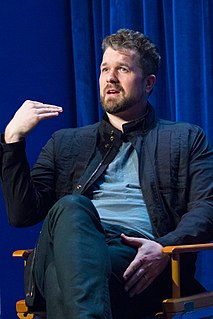A Quote by Philip Hammond
More and more, modern warfare will be about people sitting in bunkers in front of computer screens, whether remotely piloted aircraft or cyber weapons.
Related Quotes
In full accordance with the law - and in order to prevent terrorist attacks on the United States and to save American lives - the United States government conducts targeted strikes against specific al-Qa'ida terrorists, sometimes using remotely piloted aircraft, often referred to publicly as drones.
We need to make sure that whenever we're engaging in a cyber-warfare campaign, a cyber-espionage campaign in the United States, that we understand the word cyber is used as a euphemism for the internet, because the American public would not be excited to hear that we're doing internet warfare campaigns, internet espionage campaigns, because we realize that we ourselves are impacted by it.




























